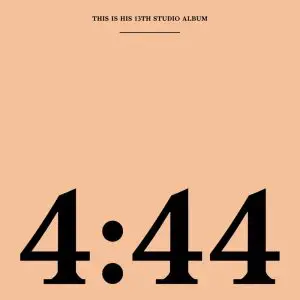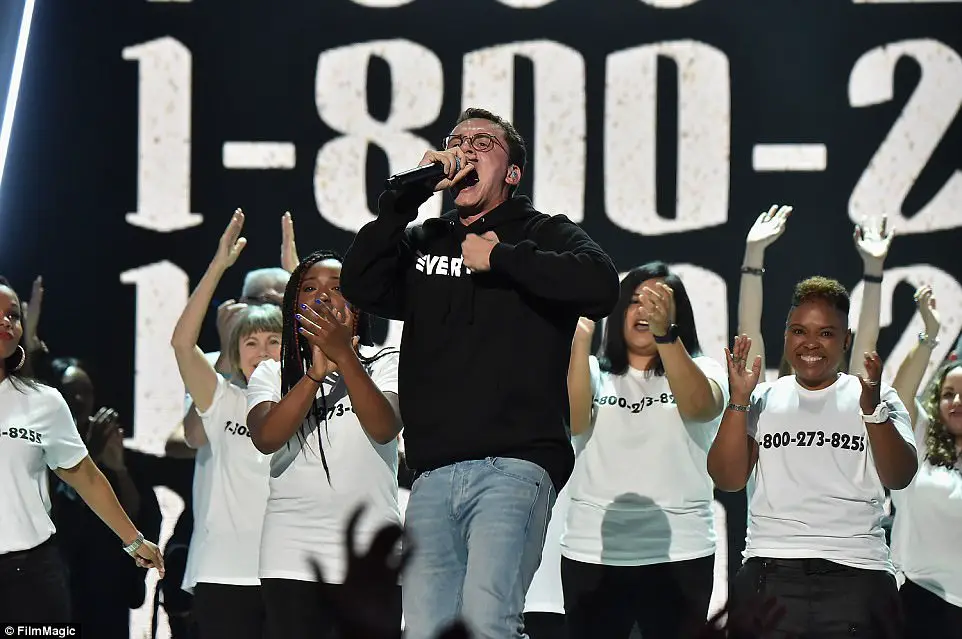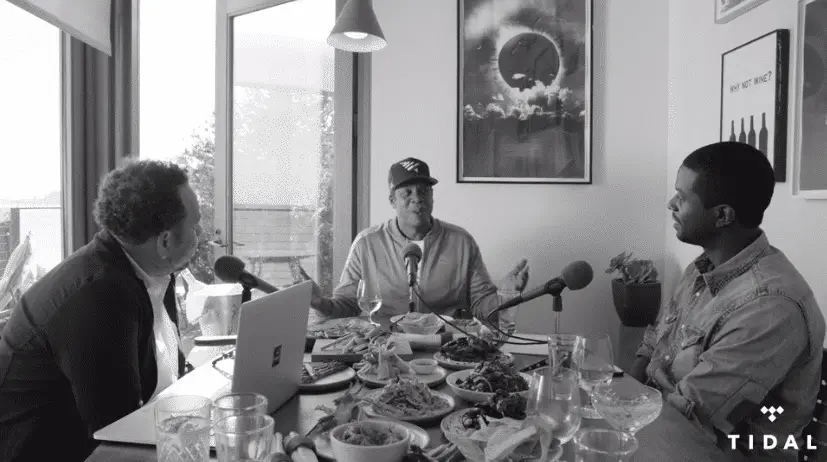[dropcap]A[/dropcap]fter the release of 4:44, Jay-Z sat down with Elliot Wilson and Brian ‘B.Dot’ Miller for a two-part interview on Tidal’s Rap Radar podcast. Speaking from a beach house in Malibu, Jay keeps it comfy and candid. Dropping names like Kanye and Solange, the first hour of the interview addresses everything from his ongoing feud with West to his handling of the notorious hands-on elevator clip and claims of infidelity. It’s all juice. Fast forward to the second-half of the sit down and we see the artist tap into central themes that the hip-hop industry is slowly taking its time to unpack.
 While black empowerment continues to frame the lyrics of most hip-hop songs, the industry has evolved to reflect a more diverse mix of faces in the game and a more open social climate. Over the last generation, hip-hop music has experienced a shift in language and culture in order to adapt to the changes being made outside of the scene. Moving from more of a rap battle to rap reflection structure and broadening the scope of inequality; the industry has transformed into a more relatable voice for many. From start to finish, 4:44 is the perfect example of this transformation. More specifically, with the tracks Kill Jay–Z and Smile, which depict a truthful conversation between Sean Carter and Jay-Z about taking ownership of past things done and his mother’s courageous coming out, respectively.
While black empowerment continues to frame the lyrics of most hip-hop songs, the industry has evolved to reflect a more diverse mix of faces in the game and a more open social climate. Over the last generation, hip-hop music has experienced a shift in language and culture in order to adapt to the changes being made outside of the scene. Moving from more of a rap battle to rap reflection structure and broadening the scope of inequality; the industry has transformed into a more relatable voice for many. From start to finish, 4:44 is the perfect example of this transformation. More specifically, with the tracks Kill Jay–Z and Smile, which depict a truthful conversation between Sean Carter and Jay-Z about taking ownership of past things done and his mother’s courageous coming out, respectively.
Turning Rhymes into Real Talk
Sharing the stage with attempted suicide survivors, all wearing the same ‘You Are Not Alone’ t-shirt, Logic raised awareness, personalized the issue and developed a sense of community.
One of the most talked about moments of the interview was Hov’s response to a question about the late Chester Bennington, the Linkin Park lead singer who recently committed suicide. The superstar shined a spotlight on the ongoing stigma of mental health and making the move to seek help – especially within the industry. Even going so far as to share a memory from the first time he met Amy Winehouse. Jay-Z made the connection to his childhood neighbourhood (and others like it) and the types of trauma (death, addiction, jail) commonly experienced by those living around him or among similar circumstances. It doesn’t matter whether you’re reppin’ your hood or Tom Ford, fear of embarrassment is the main cause for suffering in silence and going unchecked. “We’re not dealing with it because it ain’t the cool thing to do. People have to really take care of themselves,” says Jay.
Days following the airing of the podcast, Logic unleashed a memorable performance of his song 1-800-273-8255 (featuring Alessia Cara and Khalid) at this year’s Video Music Awards. Drawing inspiration from fans, friends and family, the rapper set out to write an anthem for those struggling with mental health issues. Named after the national suicide prevention hotline, the song explores two points of view: the caller and the operator. Sharing the stage with attempted suicide survivors, all wearing the same ‘You Are Not Alone’ t-shirt, Logic raised awareness, personalized the issue and developed a sense of community.

The Responsibility of the Mainstream
From race to homosexuality and mental health, there has been an evolution of themes in hip-hop over the last couple of decades and a push from mainstream artists to end the associated stigma. A rapper no longer has to be black in order to be considered authentic (or good). These days, instead of being called derogatory names, members of the LGBTQ community are being celebrated by the industry. Point in case: Same Love by Macklemore & Ryan Lewis and all tracks by Frank Ocean.
Street credit once meant everything to a hip-hop artist. And now: Drake is one of the most successful to ever take the stage and pursuing professional treatment is not a sign of weakness. Stripped down, music is a sign of expression. It’s taken until now for artists to feel comfortable enough to fully express themselves.
From race to homosexuality and mental health, there has been an evolution of themes in hip-hop over the last couple of decades and a push from mainstream artists to end the associated stigma. A rapper no longer has to be black in order to be considered authentic (or good).
While it’s not the responsibility of the industry or its artists to end a deep-rooted stigma, it is their responsibility to stay current, understand the needs of listeners and use their platform for good. They need to consciously switch gears from questioning authority to questioning popularity from time to time and realize that by accepting responsibility and speaking out on behalf of the marginalized, the power to impact (both brand and following) exists. Breaking the stigma of mental health requires crossing over into newly chartered territory and connecting with a widespread audience: the hurting, healing and hypocritical. For an established artist like Jay-Z there is a strong fan base and long history to consider. For an emerging artist like Logic there is a first impression and arrival to mainstream to consider. However, regardless of status, both types of entertainers need to learn how to cope with an elevated level of life. It’s only natural to assume the best way to do so is through music. As Jay already points out, it’s hard enough for us to sit down with family to discuss real issues – never mind having to do it in the front of the world.




